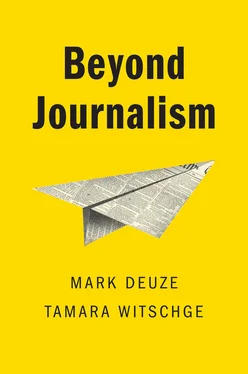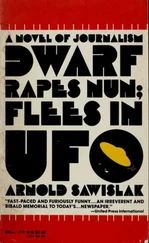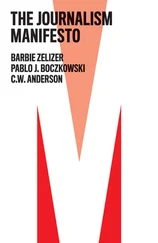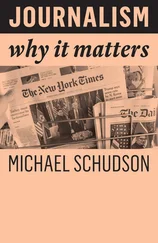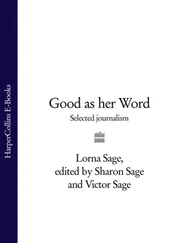Traditionally, the Dutch Journalism Fund supported legacy news media in their efforts to develop new ways of publishing news. However, in 2010 a new subsidy program was adopted (titled Persinnovatie [Innovation of the press]), redirecting its efforts to support both individual journalists and teams of journalists as well as news media organizations to take advantage of – and experiment with – new, digital opportunities. In the first five years of this program it received over 550 applications, of which 93 applications were granted with well over 10 million euro in subsidies. Approximately half of the projects were continued by the applicant after the subsidy was spent. 1
The availability of a lot of (unemployed) journalistic talent, new sources of financial support, a growing frustration with the lack of innovation in the Dutch news media landscape (among journalists and certain segments of the public alike), as well as the emergence of charismatic and media-savvy reporters and editors such as Smit, Klöpping, and Wijnberg, cemented a path for journalism startups – admittedly, a path partially paved for them by belonging to the dominant class of journalists in The Netherlands (white, middle-class, male, well-educated, living in or near the capital). As these startups expressed a profound engagement with society, a critical attitude toward traditional newswork, as well as a commitment to the ideals of journalism, we were tremendously inspired by all this activity. We also saw the young graduates of our respective master programs in journalism (in Groningen and Amsterdam) flock to these (and other) startups, eager to have a go. All of this momentum in the startup space correlated with a growing need felt by both of us to challenge, provoke, uproot, and dislocate established theoretical frameworks and practices in journalism studies and education (and in studies on journalism and journalists within other disciplines). The developments in the pioneering startup space provided the perfect operationalization of our disciplinary concerns.
Without a clear plan other than a genuine desire to listen and find out what working in such a way was all about, we went to the Nieuwsatelier in downtown Amsterdam: the ground floor of a vacant old building in the city center housing five different media startups (and a network of associated independent journalists), managed by Follow The Money. We invited all the professionals who rented desk space in the Nieuwsatelier to dinner, as in: we brought in a caterer to cook a delicious meal for everyone involved, while Mark’s students Nikki van der Westen and Fleur Launspach rigged the informal office environment with cameras and microphones. During dinner, a more than lively conversation ensued about the promises and pitfalls of startup and entrepreneurial journalism, about frustrations and excitement, about love and hate for the profession and the news industry as a whole. It was an inspiring and insightful evening that paved the way for the Beyond Journalism research project of which this book is a document. 2
Every year since that dinner conversation (on April 11 of 2014), the empirical work continued thanks to the help of different teams of graduate students who (from 2014 onward) conducted a series of case studies of journalism startups that they found inspiring, anywhere in the world. We gradually developed a comprehensive interview protocol – loosely based on the conversations during the dinner in the Nieuwsatelier, informed by emerging research among news startups around the world. Getting access turned out to be relatively straightforward – most startups are enthusiastic to show their work and share their positive and negative experiences for others to learn from. As our students found startups all over the world – from Uganda to Colombia, from Cuba to Nepal, from Canada to Italy, from Australia to the United States – we were in need of more funding. Some initial support came from the University of Groningen as part of its Rosalind Franklin Fellowship program for Tamara and the NWO internationalization grant for the humanities, which resulted in the international research network “Journalism Elsewhere.” 3This network support also allowed us to discuss the methodological approach and theoretical questions with the inspiring group of international researchers in meetings taking place from 2013–15.
Following this, many of our students were able to secure travel grants, for example through the Horizon Fund of the University of Amsterdam, supporting students from the humanities wishing to do research abroad. As our students were also trained journalists, they often managed to further support themselves by selling stories to news organizations about issues in the countries they visited. In 2015 we were honored to receive a joint nonresidential fellowship from the Donald W. Reynolds Journalism Institute at the University of Missouri in the United States. The financial support of this fellowship funded several case studies in the United States (and elsewhere), and enabled us to visit and spend some time at the Missouri School of Journalism to meet with students and faculty to discuss and further develop our work and ideas. In 2015, Tamara was awarded a five-year personal grant from the Dutch national research organization NWO for her research program “Entrepreneurship at Work,” and in 2017 she gained additional funding from the NWO for the action research project “Exploring Journalism’s Limits.” 4Both these projects contained elements that allowed us to support the research and output for the Beyond Journalism project.
By the academic year 2015–16 the first case studies were completed. Charlotte Waaijers included our dinner session in her study on Follow The Money, Shermin Chavoushi spent significant time at the fledgling De Correspondent, Lotte van Rosmalen went to California to observe the operation of InkaBinka, while Jorik Nijhuis visited Nepal to observe how Naya Pusta managed to distribute its children’s television news program via discs across a country ravaged by natural disaster. Andrea Wagemans did a stellar project with Mediapart in Paris – one of the few startups we found making a profit – which led to her first scholarly journal publication (Wagemans, Witschge, and Deuze 2016), and she has continued to work on the project, transcribing and coding interviews, and is currently pursuing her PhD on innovation in journalism. Other projects that year included Boris Lemereis’s study of 360 Magazine , Joris Zwetsloots’s inspiring observation of the all-female editorial collective Bureau Boven in Amsterdam, Susan Blanken and Fleur Willemsen’s coverage of The Post Online and its TPO Magazine, Heleen d’Haens’s research on MMU Radio in Uganda, and Guus Ritzen and Liz Dautzenberg collaborated for their intensive fieldwork in New York while studying the six hyperlocal news startups that are part of the Brooklyn-based Corner Media Group. Luuk Ex traveled to Tehran, Iran – an area teeming with startup activity in anticipation of the market opening up after the end of economic sanctions. Under difficult circumstances, Luuk visited and profiled Jaaar (an online kiosk for all Iranian newspapers), Peivast (a monthly print magazine about information and communication technology), and Aparat (a video-sharing website). Amanda Brouwers and Sofie Willemsen, prior to starting their PhD research at the University of Groningen, went to the United States to research, respectively, the now-defunct Alaska Dispatch and the Common Reader (at Washington University).
In 2016–17, Alexandra van Ditmars visited Zetland in Denmark – a startup that among other activities organizes a successful annual theater performance (Zetland Live) based on their journalistic investigations throughout the year, Ronja Hijmans looked at the university-based hyperlocal The Brooklyn Ink, Hadewieg Beekman visited the documentary film venture Mediastorm (also in New York), while Renate Guitink had an inspiring time in Vancouver at the offices of the all-female investigative journalism company Discourse Media. Other cases completed were IRPI in Italy by Milou van der Zwan, Sophie Frankenmolen and Evelien Veldboom’s study of Code4SA in Johannesburg (South Africa), and a detailed profile of La Silla Vacía in Colombia by Tessa Colen.
Читать дальше
